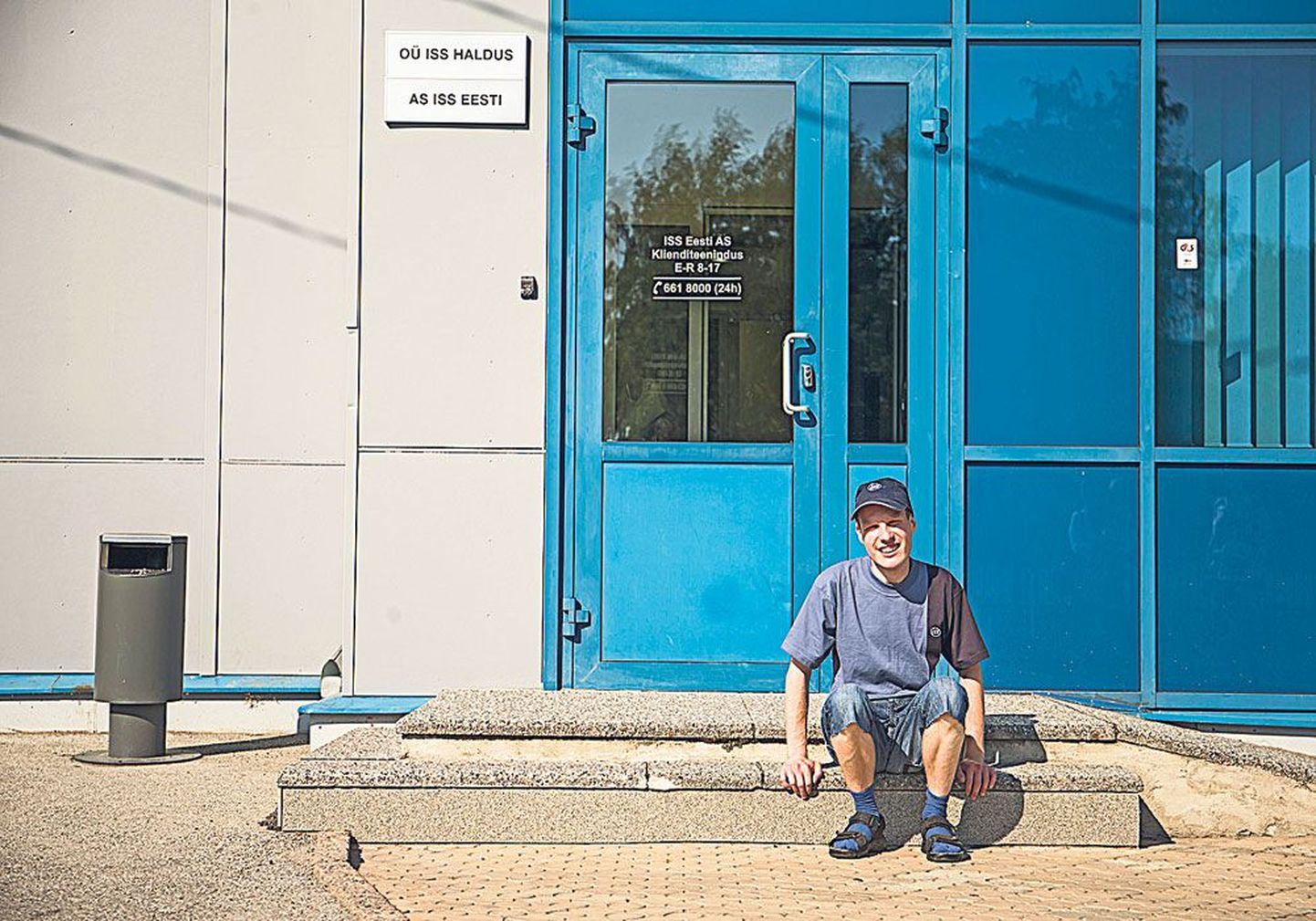
By the current salary system, the disabled aren’t motivated to work, says Mare Enniste, personnel manager in building company Seve – one to hire the deaf.

By the current salary system, the disabled aren’t motivated to work, says Mare Enniste, personnel manager in building company Seve – one to hire the deaf.
For years, the cleaner ISS Eesti and construction company Seve have offered work to the disabled, claiming these to be more responsible and steadfast than the able-bodied.
ISS Eesti has Jaanus Lehiste (25) on its payroll. Last summer, the young man did his field training at the company and is employed as a cleaner since the fall.
Mr Lehiste shows up at 7 am every day, does the cleaning for two hours, and goes back home again – working for ten hours a week. The man likes the work a lot, and so far he has had no mishaps whatsoever.
Communication culture created
Mr Lehiste is just one of the 200 disabled people working for ISS Eesti. The company that employs 1,700 has lots of special needs. Like the partially sighted persons, says the ISS Eesti personnel manager Helo Tamme.
How will a person almost blind get anything cleaned, one may wonder. As assured by Ms Tamme: once a partially sighted person was shown how to clean a room, he well remembered all the crooks and crannies and he cleaned even better perhaps than other workers.
Facing problems, ISS Eesti has learned the need to train its own managers. Ms Tamme recalls how once a schizophrenic cleaner didn’t take her medicine and had a fit while at work. The cleaner run around the facility and refused to hand over the keys.
Even so, says Ms Tamme, the companies do understand: «Never has the client said don’t you send a cleaner like that again.» The customers, she added, are rather appreciative of someone hiring the disabled.
At construction company Seve Ehitus, 17 of the 83 on payroll are deaf. Seve’s personnel head Mare Enniste says when the deaf came to work, there was a measure of conflict. Among the staff, an attitude was developed with mishaps: «So here come the deaf, what do they know...»; but this quickly passed, says Ms Enniste, as the company started to have trainings regarding the communication culture among the deaf.
For instance, they taught the colleagues that on the construction site, one may touch a deaf person on the shoulder; or blink the lights, instead of going to the other end of a room. Also, the workers communicate a whole lot via text messages and drawings.
ISS Eesti chief executive Madis Kase says that once a person with special needs is trained, he will be a worker more steadfast and stable than an able-bodied one with more options to move about the labour market.
State help expected
Mr Kase will not deny: there is the financial twist here – tax incentives supporting the hiring of disabled people. Still, what the ISS Eesti CEO stressed the most was the deep labour shortage which, according to him, is the «haunting ghost» of the day. The ghost has set the company seeking eagerly for potential staff – even the kind that some others might never consider.
According to Ms Enniste, the main fault with the work capacity reform is that the people in charge don’t know much at all of the disabled people’s problems.
«Somebody came up with the idea that a disabled person must make €640 in monthly wages and then we will remove all the benefits and the person will be doing just fine,» Ms Enniste said sadly.
Once a disabled person goes to work, his incapacity benefit will, pursuant to reform, shrink in proportion to the salary – for starters, the cut is planned starting at an €640 income.
Ms Enniste thinks that if the €180 benefit is subtracted from a €640 salary, the disabled has no need to go to work as, when working part-time, he will not get more money at the end of the day. «Somebody, somewhere, has really botched up his calculations,» she said.
What Ms Enniste expects from the state is more support, above all: like compensating the five sick days that people with special needs have be offered. Also, she says the state might pay need-based benefits – for instance, to hire sign language interpreters for the deaf. Currently, the company must pay these expenses itself – as also for the smartphones essential to communicate with the deaf, thereby qualifying as work equipment.
«For motivation that won’t be much, but it would still help,» said Ms Enniste.